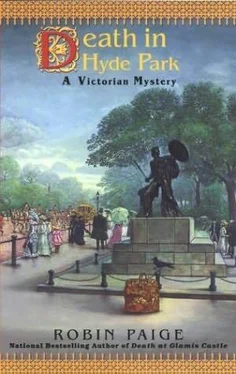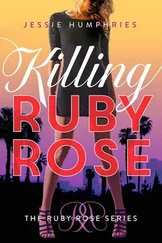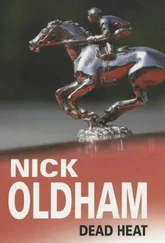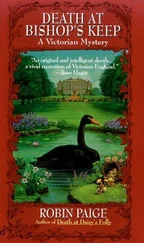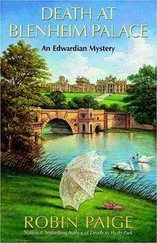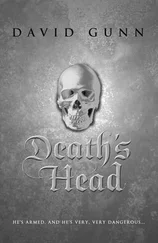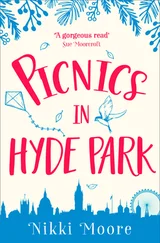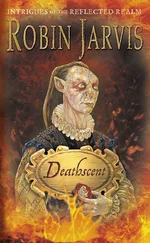Robin Paige - Death in Hyde Park
Здесь есть возможность читать онлайн «Robin Paige - Death in Hyde Park» весь текст электронной книги совершенно бесплатно (целиком полную версию без сокращений). В некоторых случаях можно слушать аудио, скачать через торрент в формате fb2 и присутствует краткое содержание. Жанр: Классический детектив, на английском языке. Описание произведения, (предисловие) а так же отзывы посетителей доступны на портале библиотеки ЛибКат.
- Название:Death in Hyde Park
- Автор:
- Жанр:
- Год:неизвестен
- ISBN:нет данных
- Рейтинг книги:5 / 5. Голосов: 1
-
Избранное:Добавить в избранное
- Отзывы:
-
Ваша оценка:
- 100
- 1
- 2
- 3
- 4
- 5
Death in Hyde Park: краткое содержание, описание и аннотация
Предлагаем к чтению аннотацию, описание, краткое содержание или предисловие (зависит от того, что написал сам автор книги «Death in Hyde Park»). Если вы не нашли необходимую информацию о книге — напишите в комментариях, мы постараемся отыскать её.
Death in Hyde Park — читать онлайн бесплатно полную книгу (весь текст) целиком
Ниже представлен текст книги, разбитый по страницам. Система сохранения места последней прочитанной страницы, позволяет с удобством читать онлайн бесплатно книгу «Death in Hyde Park», без необходимости каждый раз заново искать на чём Вы остановились. Поставьте закладку, и сможете в любой момент перейти на страницу, на которой закончили чтение.
Интервал:
Закладка:
“What a dreadful experience,” Kate said, reaching across the table and taking Nellie’s hand. “I am so sorry, so very sorry, that it happened. And that I did not warn you. Perhaps if you had known-”
“Known what?” Nellie asked, startled.
“That Jack London is married,” Kate said, her eyes full of compassion. “His wife Bess is in California, with their little girl. I learned this at the party his publisher gave for him when he arrived in London.”
For a long moment, Nellie stared at her, the words echoing over and over again in her mind. Married married married married. Then, in spite of the fact that they were seated in a public dining room, she burst into tears, hot and harsh with bitter self-recrimination.
CHAPTER TWENTY-ONE
“When did you love me?” she whispered.
“From the first, the very first, the first moment I laid eyes on you. I was mad for love of you then, and in all the time that has passed since then I have only grown the madder. I am maddest, now, dear. I am almost a lunatic, my head is so turned with joy.”
Jack London, Martin EdinIt was nearly eleven on Tuesday morning when Jack London donned his slum costume and locked the door of his room on his typewriter and pile of manuscript pages. His room might be small and lack important amenties, but he could lock the door and know it would not be disturbed. Putting the key in his pocket, he went down the private stair and into the alley at the back of the garden, his Brownie in a canvas bag slung over his shoulder. The camera had cost him all of two dollars in New York City, and the film was cheap enough, twenty cents for six exposures. He planned to take pictures for his book-a great many pictures, since he was an amateur and couldn’t know how the photographs would turn out until he had them developed back in America.
But it wasn’t a very nice day for taking photographs. The gray fog that drifted through the streets was streaked with yellow, and the air had a sharply sulphurous smell. The smell of the pit, London thought dourly, glancing with loathing at the grim, smoke-smudged brick buildings that rose on either side of the street. He had spent the morning reading about that poisonous smoke in a report he had obtained from the Socialists. The curator at Kew Gardens, a fellow named Sir William Thistelton-Dyer, had studied smoke deposits on vegetation, concluding that each week no fewer than six tons of soot and tarry hydrocarbons fell out of the sky onto every quarter of every square mile in and around the City.
Six tons! It was no wonder, London thought, trudging in the direction of the East India docks, that the children were growing up into rotten adults, without virility or stamina or any energy for work. The Abyss was a huge, smoldering, sulphurous fire that smoked the juices of joy and spirit out of everyone, as if they were sides of beef hung to cure in some country smokehouse. Why, not a soul had any look of pleasure or delight or spontaneity or His eye was caught by a slender figure sauntering up the street ahead of him, a young gypsy woman in a gay red shawl, with a red flounce on her ragged dress and a red bandana tied over the mop of thick dark hair that swung loosely around her shoulders. He could not see her face, but her hips had a provocative sway and she carried herself with a confident defiance that made her stand out like a Romany princess among the weary multitudes on the dirty, crowded street. Now, there was a woman whose vital juices had not yet been smoked out of her, London thought with a sense of surprised pleasure, and when she turned into an eating-house, he went in after her.
She leaned her elbows on the dirty wooden counter, looked up at the fly-specked menu board, and ordered a two-penny pie and a bottle of lemonade. She was untying the money out of a knotted handkerchief at her belt when London slid several coins across the counter.
“Permit me,” he said with a smile.
The woman turned toward him, and he was struck dumb. She was no gypsy, but the very same Charlotte Conway whom he had last seen jumping down from the rusty iron ladder in Hampstead Street. Now, as then, she seemed to him easy and free in her body, unconstrained and open and frank in herself, ready to meet any peril or opportunity that the world might offer. Stunned, he realized that this Anarchist gypsy was the woman he had been looking for all his life.
It took a moment-it felt like a lifetime-to shape her name. “Lottie!” he whispered. “Lottie Conway!”
Her eyes met his with an astonishing boldness, widening and then narrowing, taking in his seafaring clothes and his green cloth cap. “Do I know you?” she asked.
The huskiness of her voice, the artlessness of her greeting, delighted him. “Jack London,” he said. “I’m an American journalist here to do a story. We met in an alley off Hampstead, when you shinnied down that ladder the day the cops raided the Clarion.” He grinned. “That was swell, the way you ditched those John Laws. A second more or less, you’d’a been pinched and hauled off to the calaboose.”
She looked at him as if he were speaking a foreign language, but at that moment, the meat pie and lemonade were passed across the counter. He picked them up and, in a proprietary way, led the girl to a wooden table in the farthest corner. She sat down and dove into the pie as if she were starving, saying not a word.
“You’re on the lam, are you?” he asked, when she was finished.
She frowned and pushed back the empty plate. “On the lam?”
“Trying to keep clear of the cops.” With a grin, he ran his eye down her frock, admiring the swell of her breasts beneath the dirty bodice, the narrow waist, the trim ankles under the muddy hem of her skirt. “Done that myself in my hobo days, riding the rails across America. Got a few tricks up my sleeve I’d be glad to teach you. I remember once in Reno, Nevada, back in ‘92-”
“Thank you for the meal.” She stood. “Good-bye, now.”
He caught at her wrist. “No, don’t, please!” he said, and heard and was not ashamed of the pleading in his voice. “I’ve just found you. You can’t go away.”
“I can’t?” Her eyes were on his, his fingers still tight on her wrist. “Why not?”
“Because.” Because I didn’t know there were such women in the world, he thought wildly. Because you give wings to my imagination, and open great, luminous pages in books where heroes do heroic deeds for the sake of beautiful ladies. Because I am greedy for the feel of you. “Because I can help you,” he said humbly. “I want to help you.”
“Help me? Why?” She pulled her arm away, but she sat back down.
“Because you need me,” he said, his humility vanishing in a hero’s boldness, which was abashed the very next moment by her throaty laugh.
“Need you?” She tossed her head, an amused smile on her lips. “Why in the world should I need you?”
“Because,” he said, and leaned toward her, his eyes glinting with delight at the thought of the temptation he was offering her, his heart filled with the almost overpowering hope that she would accept. “Because I know a place where you can hide. A place where no one in the world would ever look for you.”
CHAPTER TWENTY-TWO
When bloody finger marks or impressions on clay, glass, etc. exist, they may lead to the scientific identification of criminals. If previously known, they would be much more precise in value than the standard mole [informant] of the penny novelists… There can be no doubt as to the advantage of having, besides their photographs, a nature-copy of the forever-unchangeable finger furrows of important criminals.
Henry Faulds, letter to Nature Magazine, 28 October 1880At the Sibley House breakfast table on Tuesday morning, Kate was handed a telegram from Hodge, her butler at Bishop’s Keep. Patrick, the sixteen-year-old red-haired boy whom she and Charles had taken as their own, had arrived home the night before and was laid up with a badly-sprained ankle. ^6 The boy-a young man now, nearly-had a marvelous gift for working with horses and served as an apprentice to George Lambton at Newmarket, one of the country’s leading horse trainers. But he had suffered an accidental fall, and while he was not badly injured, Mr. Lambton had thought it best that he go home for a week or two to recuperate.
Читать дальшеИнтервал:
Закладка:
Похожие книги на «Death in Hyde Park»
Представляем Вашему вниманию похожие книги на «Death in Hyde Park» списком для выбора. Мы отобрали схожую по названию и смыслу литературу в надежде предоставить читателям больше вариантов отыскать новые, интересные, ещё непрочитанные произведения.
Обсуждение, отзывы о книге «Death in Hyde Park» и просто собственные мнения читателей. Оставьте ваши комментарии, напишите, что Вы думаете о произведении, его смысле или главных героях. Укажите что конкретно понравилось, а что нет, и почему Вы так считаете.
